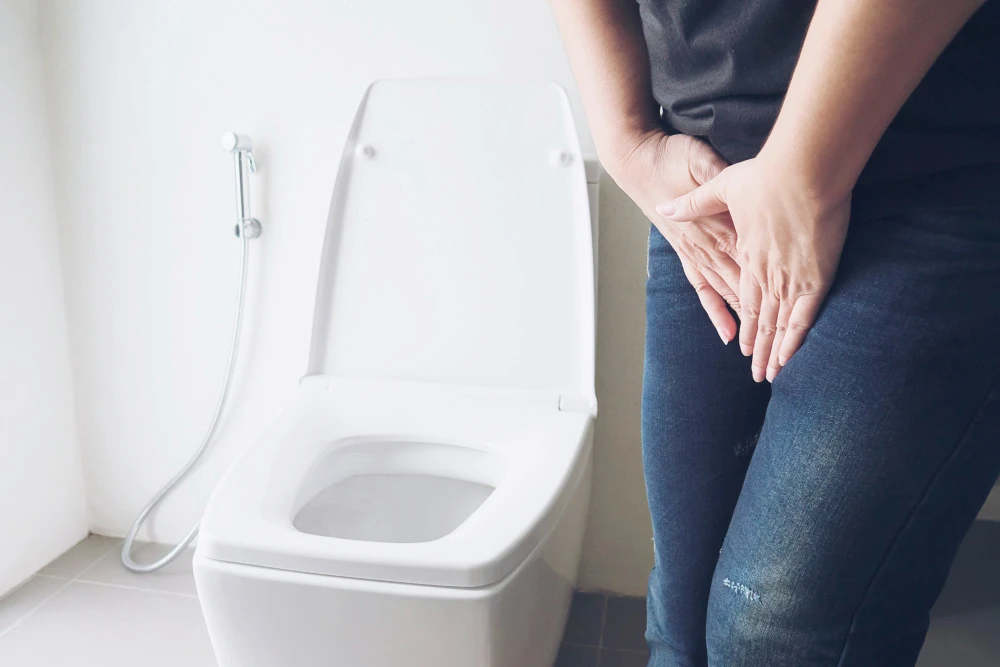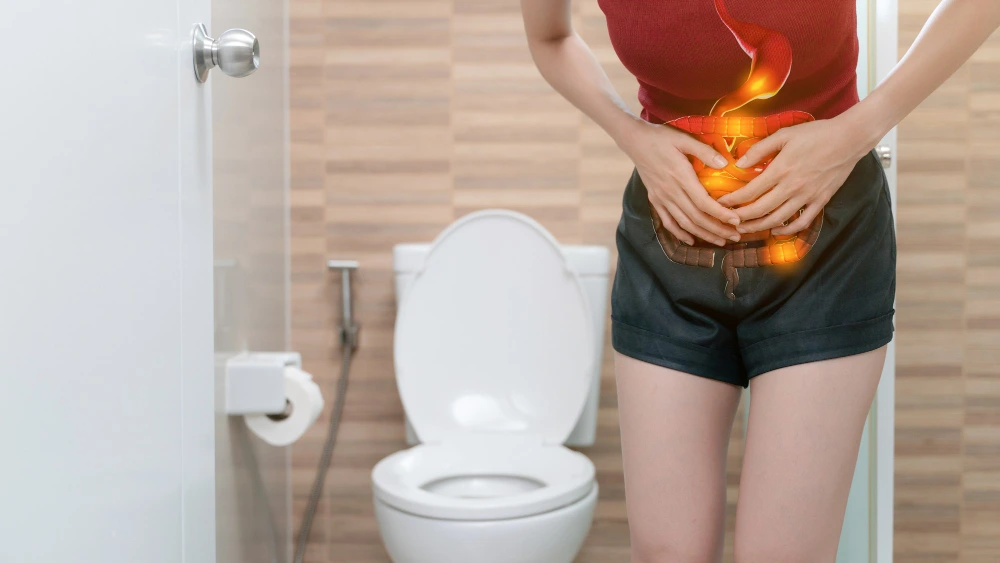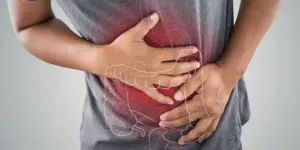Best Urinary Incontinence Treatment | Advanced Care & Proven Results
Get specialized urinary incontinence treatment in Chennai with advanced diagnosis, medication, minimally invasive procedures, and expert urologists for safe and lasting relief.

Urinary Incontinence refers to the involuntary leakage of urine — a condition that affects both men and women, often leading to embarrassment, discomfort, and a reduced quality of life. It can range from occasional leaks during coughing or sneezing to a complete inability to control urination.
At VS Hospitals, Chennai, the Department of Urology and Nephrology offers specialized care for patients suffering from urinary incontinence. The hospital combines advanced diagnostics, minimally invasive treatments, and personalized rehabilitation programs to restore bladder control and patient confidence.
The expert team of urologists and pelvic health specialists at VS Hospitals addresses all types of incontinence — stress, urge, overflow, and functional — using evidence-based medical and surgical methods. With patient-centered care, modern technology, and an empathetic approach, VS Hospitals ensures discreet, effective, and lasting relief for those dealing with this condition.

Early Detection Saves Lives
Early detection and treatment are crucial for improving the chances of survival. If you notice any concerning symptoms, consult a healthcare provider immediately.
Signs and Symptoms
Leakage During Physical Activity
Unintentional urine loss during coughing, laughing, sneezing, or exercising (typical of stress incontinence).
Sudden Urge to Urinate
A strong and uncontrollable need to urinate, followed by leakage (urge incontinence).
Frequent Urination
The need to urinate more than 8 times a day or multiple times during the night.
Incomplete Emptying
Feeling that the bladder isn’t completely emptied after urination.
Leakage Without Awareness
Involuntary dripping or wetness without any sensation of urge.
Nocturnal Enuresis
Bedwetting or urine leakage during sleep in adults.
Weak Urine Stream
Indicates obstruction or weakened bladder muscles.
Pelvic Pressure or Discomfort
Common in women with pelvic floor weakness.
Blood in Urine
Hematuria - pink, red, or dark urine, the most common symptom
Frequent Urination
Feeling the need to urinate frequently, even when bladder is not full
Painful Urination
Experiencing pain or burning sensation while urinating
Back or Pelvic Pain
Pain that occurs as the cancer grows and spreads
Unexplained Weight Loss
Significant weight loss not related to diet or exercise
Fatigue
Feeling unusually tired or weak without a clear cause
These symptoms may not only cause physical discomfort but also affect emotional well-being. VS Hospitals offers sensitive and private consultations where patients can discuss symptoms without hesitation and receive appropriate care.
Meet Our Expert Urinary Incontinence
Risk Factors
Smoking
Smoking is one of the leading causes of bladder cancer. Chemicals in tobacco smoke can damage the lining of the bladder, increasing the risk.

Gender
Men are at a higher risk of developing bladder cancer than women.

Chronic Bladder Infections or Inflammation
Conditions such as bladder infections and long-term bladder inflammation can increase the risk.

Exposure to Chemicals
Prolonged exposure to certain chemicals, especially those used in the dye industry, rubber production, and chemical manufacturing, increases the risk.

Gender
Women are more likely to experience incontinence due to pregnancy, childbirth, and menopause-related hormonal changes.

Obesity
Extra body weight puts pressure on the bladder, causing stress incontinence.

Chronic Cough
Long-term coughing from smoking or lung disease increases bladder strain.

Prostate Disorders
In men, prostate enlargement or post-surgical effects can cause incontinence.

Nerve Damage
Conditions such as diabetes, stroke, spinal injury, or multiple sclerosis can affect bladder control.

Constipation
Chronic straining can damage pelvic muscles and nerves.

Lifestyle Habits
Excess caffeine or alcohol consumption can irritate the bladder and trigger leaks.

Advanced Cancer Treatment Options
Diet and Nutrition
Prevention
Diagnosis
Key Services
Key Facilities
Diet plays an important role in bladder health. The nutrition experts at VS Hospitals help patients design meal plans that reduce irritation and improve bladder control.
- Increase fiber intake: Whole grains, fruits, and vegetables prevent constipation, which can press on the bladder.
- Stay hydrated: Drink enough water throughout the day; dehydration can worsen irritation and urgency.
- Limit caffeine and alcohol: Both act as diuretics and increase urine production, leading to frequent urination.
- Avoid acidic foods: Tomatoes, citrus fruits, and spicy foods can irritate the bladder lining.
- Control sugar intake: Reduces the risk of urinary infections, especially in diabetic patients.
- Include magnesium-rich foods: Bananas, nuts, and leafy greens help relax bladder muscles.
- Opt for smaller, frequent meals: Prevents bloating and pressure on the bladder.
- Monitor salt consumption: Excess salt can increase fluid retention and worsen swelling around the bladder.
Customized nutrition plans at VS Hospitals complement medical and physiotherapy interventions, supporting recovery and long-term bladder health.
While not all causes of urinary incontinence can be prevented, certain habits and lifestyle changes can significantly reduce the risk.
- Maintain healthy weight: Reduces pressure on the bladder and pelvic muscles.
- Do pelvic floor exercises (Kegels): Strengthen the muscles controlling urination, especially after childbirth.
- Manage chronic conditions: Keep diabetes, high blood pressure, and constipation under control.
- Avoid smoking: Prevents coughing-induced bladder strain and reduces infection risk.
- Limit caffeine and alcohol: Helps stabilize bladder activity.
- Regular bathroom habits: Avoid “holding it in” for long periods and practice double voiding to empty the bladder fully.
- Stay active: Regular exercise promotes circulation and pelvic muscle tone.
- Monitor fluid intake: Stay hydrated without overconsumption to balance bladder activity.
The Urology Department at VS Hospitals also conducts awareness programs to educate the public on continence care and preventive strategies for bladder wellness.
design a customized treatment plan. The Urology Department at VS Hospitals is equipped with advanced diagnostic tools that help identify the exact cause and severity of bladder dysfunction.
Diagnostic Methods Include:
- Detailed Medical History: Understanding symptom patterns, lifestyle, and medical conditions.
- Physical and Pelvic Examination: Evaluating pelvic muscle strength, nerve function, and possible prolapse.
- Urinalysis: Checks for urinary tract infection, blood, or sugar in the urine.
- Bladder Diary: Patients record frequency, fluid intake, and leakage episodes over several days.
- Post-Void Residual Measurement: Determines how much urine remains in the bladder after urination using ultrasound.
- Urodynamic Testing: Measures bladder pressure, flow rate, and muscle activity during filling and emptying.
- Cystoscopy: A thin tube with a camera is inserted into the bladder to detect abnormalities or blockages.
- Ultrasound or MRI: Used to identify structural issues like bladder prolapse, tumors, or stones.
- Pad Test: Measures the amount of urine leakage during physical activity.
The multidisciplinary team at VS Hospitals ensures a comfortable, confidential diagnostic experience, guiding patients toward the most effective treatment options.
The Urinary Incontinence Care Program at VS Hospitals offers comprehensive solutions ranging from lifestyle modification and physiotherapy to advanced surgical procedures. Each patient’s treatment plan is personalized for long-term results and improved bladder control.
- Clinical Assessment: Detailed medical history and bladder function evaluation.
- Urodynamic Testing: Measures bladder pressure, capacity, and urine flow.
- Pelvic Floor Therapy: Strengthening exercises to improve muscle control.
- Medication Management: Prescribed drugs to reduce urgency and frequency.
- Minimally Invasive Procedures: Sling surgery, Botox injections, or nerve stimulation.
- Behavioral Training: Bladder retraining and fluid management techniques.
- Post-Surgical Care: Rehabilitation and follow-up for long-term continence.
- Lifestyle Counseling: Diet and weight management to support bladder health.
At VS Hospitals, the focus goes beyond symptom relief — the goal is full functional recovery, confidence restoration, and long-term urinary health.
VS Hospitals, Chennai, is recognized for its world-class infrastructure and expert urology team dedicated to treating urinary disorders with utmost precision and compassion.
Top-Notch Facilities Include:
- Advanced Diagnostic Evaluation – Comprehensive urodynamic and bladder function testing for accurate diagnosis.
- Specialized Treatment Plans – Personalized therapy options including medications, pelvic exercises, and behavioral training.
- Minimally Invasive Procedures – Modern surgical techniques such as sling surgery and Botox injections.
- Pelvic Floor Rehabilitation – Physiotherapy-guided muscle strengthening programs to improve bladder control.
- Female Urology Care – Dedicated services for women with stress or urge incontinence.
- Post-Surgical Support – Regular follow-up and lifestyle counseling to prevent recurrence.
- 24/7 Medical Assistance – Continuous monitoring and care for patients with chronic incontinence issues.
- Privacy and Comfort – Patient-friendly environment ensuring dignity and confidentiality during treatment.
These facilities enable VS Hospitals to deliver world-class urinary incontinence care with the highest safety standards, patient comfort, and successful outcomes.
Top Medical Facilities at Our Multispeciality Hospital – Here’s What Makes Us Different!
Ready to Begin Your Urinary Incontinence Care Journey?
Learn More About Urinary Incontinence
Frequently Asked Questions
VS Hospitals provides customized treatments including pelvic floor therapy, bladder training, medications, and advanced surgeries like sling or laser procedures. The approach depends on the cause and severity, ensuring maximum comfort, privacy, and long-term relief.
Yes. Pregnancy and vaginal delivery can weaken pelvic floor muscles, leading to stress incontinence. At VS Hospitals, postpartum rehabilitation programs and physiotherapy help women regain bladder control effectively through tailored recovery plans.
Absolutely. VS Hospitals offers advanced minimally invasive options such as Botox injections, bulking agents, and nerve stimulation therapies. These techniques ensure faster recovery, minimal discomfort, and excellent results in restoring bladder control.
